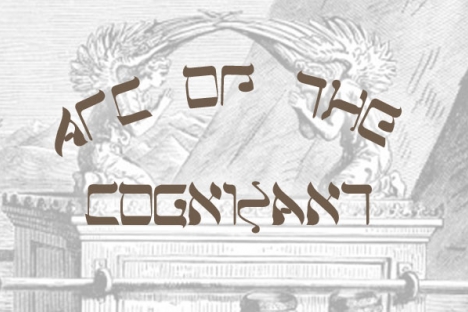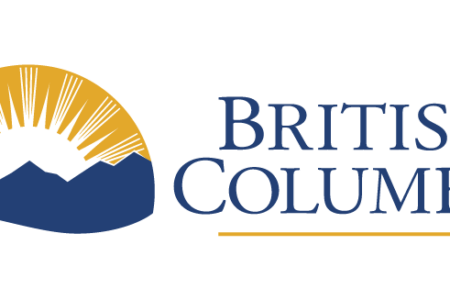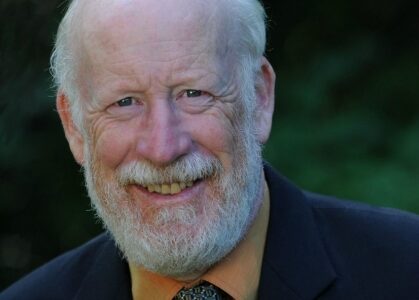COLUMN: Political Intelligence, Elections, and the Demos
Some Elections matter more: this should be one
Canadians are about to choose a national, federal government on October 21. It is a more significant choice for our nation than we have faced in many elections, and not because Canada alone is facing some unusual circumstances: the entire human world and the non-human species sharing our globe also, are profoundly affected by the kind of rulers and the actions and minds of those rulers to whom we give our obdience and who shape our land, society, and culture. Provincial governments are no less important, and the scene in Alberta and Ontario makes me want to weep.
The near future is dim, the medium term worse. Prospects of mass die-offs are real as climate change marches on with no possibility of a halt now. I have written a shorter column this month in the hopes my readers will also read the three articles I reference with links at the bottom of this piece.
Full Disclosure: I prefer a Philosopher-Queen over Election by the People
I do not know who “the People” [Greek demos] are, but I know I distrust their political judgment. I say this after years of studying political history. Democracy as we know it under capitalist market conditions is not rule by the People, whatever our institutions and discourse may pretend. It is not good government either. But the People do have some responsibility for that. Canada has opportunity for input from citizens, but there is ample evidence that the participation is much less than the opportunity.
The People do not care sufficiently about the way others govern them. Life is complicated in the modern and post-modern West. Too many other things distract us from being informed and engaged in governing ourselves, in educating ourselves enough to control the politicians who are the professionals of governing.
The professional class of politicians, alongside the better-educated of society who are affluent professionals in other work, the bureaucrats, bankers, white-collar workers with advanced degrees, the artistic and cultural producers, and the academics and journalists (who write about politics for the better-educated) are not The People.
The well-educated and culturally-significant minority are a socio-economic category between the demos and the ruling class; the ruling class reward the mediating effects of the professionals quite well in order to make “democracy” appear to be something it is not. The People pay attention to a multitude of things before politics, and many of the things – sport, arts, travel, entertainments, literature – are things the mediating classes provide for them. Voter-participation rates under 60% at the polls are normal in affluent democracies; politics cannot keep the electors’ interest.
The People also are bound to the brute fact of being employed by the rulers who own the economy and in thrall to the income earned from paycheques, without which life in capitalism is misery. Culture is biased toward this class maintaining its rule. They rule in their own interest; in capitalism that means in the interest of keeping this social and economic order of exploitation in operation. Ruin the planet but keep paycheques coming, and the People will not rise to overthrow capitalist democracy.
Thus, I would prefer a philosopher-queen on the Platonic model for my ruler; a woman because history is replete with male leadership — and the world they have created for us today is not one I feel is optimal for human flourishing, by many measures. Women could certainly not do worse than men have done.
Plato imagined Guardians in his ideal model Republic; these are chosen individuals with a specific formation of their minds and character. The guardians and the single philosopher-monarch feel deep moral obligation to society, to govern with ethics beyond reproach, ruling for all, not for themselves nor any minority. They alone comprehend the needs of the governed for a good life, a meaningful life, a life of [Socratic?] seeking to know oneself. The good life in Canada is — according to a vast
machinery advertising everything from cars and banks to lottery prizes and bucket lists – money, possessions, and any thing/experience money can buy.
I am still vulnerable to criticism that I am too vague about the meaning of a philosopher-queen. Let me adduce some exemplars of women whom I would gladly submit to as monarch: Ursula K. LeGuin; Doris Lessing; Cecelia Holland; Gro Brundtland of Norway; Jacinda Ardern of New Zealand.
If these names are strange to you, I supply a couple of referents.
https://www.brainpickings.org/2018/11/29/ursula-k-le-guin-the-dispossessed-suffering/
https://theelders.org/profile/gro-harlem-brundtland
Women who would never qualify: Margaret Thatcher; Rachel Notley; Indira Gandhi; Kim Campbell; Eva Peron.
The Election and the lack of meaning in our politics
Canadian politics and its leadership class are devoid of meaning outside of a narrow definition delineated by cultural assumptions which are treated as self-evidently true. Life is career, a course of choices to maximize one’s self-interest, secure the means of possessing things and enjoyable experiences for oneself and one’s loved ones. One knows one’s self and the needs and wants of that self, and politics must proceed within that basic landscape of personal identity in the mind of every voter.
I know of no-one better than Charles Eisenstein for a summary of the paths to happiness offered to us in modern affluent Western democracies; he reduces our choices to a basic three. Eisenstein holds to his visionary belief in miracles among homo sapiens as we graduate from the narrative of separation and control to the new story of Interbeing. I cannot find the depth of spiritual conviction I’d need to follow his faith in our species. He foresees a breakdown with a swift resurrection in global civilization; I think a prolonged dark age is coming with planetary deterioration.
The path of choosing for maximum self-interest in market capitalism is all that Canadian politicians know. It is called “getting ahead” by the Conservative leader in this election, and “growing the middle class” by the Liberal. All parties focus on incomes and financial measures to make life better for us. Something they call “Canadian values” are the immaterial qualities our leaders claim to sustain, but no one is quite sure of a consensus on those shadowy matters; it is meaningless.
There is no political leadership with a clear voice in Canada seeking election by a focus on giving meaning to life other than through material security. That kind of language has been ruled out of the political arena in the modern age, for the modern age is the era of materialism, secularism, individualism, and existentialism as the dominant mental universe of citizens in democratic Western societies.
Materialism: the conceptual prison of our time, accepting only what our physical sciences assures us is real, denying intangibles such as soul, spirit or unbodied consciousness, absolutely confident in its assertion that materialist, mathematical sciences have a monopoly on discovering cause-and-effect facts through their methodologies. Truth is what Science can tell us, no other facts matter.
To delve into the absurdity of this culturally-dominant worldview, take time to consider C. Eisenstein, Rupert Sheldrake, Richard Tarnas, John N. Gray.
Secularism: the simple assumption that this physical world and what we can know of it with our senses and our intellects is primary to all human life and motivation. The world (Latin secula) is matter, and what matters to us is this planet at this time and no other. There is no strong reason to grant notions of mystery, the sacred, or the existence of other realities beyond human knowing any credence or power to motivate an individual. Neither future or past consideration is capable of gentling the secular focus. Here and now is all, and material reality is the only one.
Individualism: The Self, which I have written about extensively in several previous editions of the Arc, is taken on faith to be a reality, and it is the sole subject in a world of objects. “I think, therefore I am” is the Cartesian formulation, and the liberation of this form of ego-identity is the prerequisite for the modern Western way of being. A person does not have meaning in her or his Self, and navigates life in an essentially random meaningless cosmos, where entropy is endless, where truths are discovered by rational scientific inquiry.
Existentialism: the very modern philosophy that holds there is no meaning in life or cosmos other than what the mind of humans creates as meaning. One has a life of purpose and meaning only by virtue of an effort to create it. My meaning is not yours, and I have no obligation to bring you into my universe of meaning, but an individual of power – a messianic leader, for example — can create meaning for others by force of his or her acts.
Nietzsche warned Europeans of the implication of their loss of any sense of God, and many have argued that Naziism, fascism, and bolshevism, proved his point. The 20th century was hardly an advertisement for the wonders of the human ego set free from the authority of any standard of meaning.
It’s not just Climate Change
The world’s prospects are bleak for reasons other than the shattering effects of climate on human life and human civilization. Those effects also set loose other horrible forces in geopolitics and the global economy.
Capitalism staggered on after 2008 because the ruling class demanded from governments that the latter do what was best for capital: save the market with massive influxes of public debt money. Barack Obama did nothing different from what Donald Trump would have done. This economy is at point of collapse and the fragility of a system predicated on ceaseless growth will only be worsened by the madness and chaos that climate transformation enforces. The folks at the bottom of social pyramids everywhere will suffer most, and the call for climate justice will be as unavailing as calls for socialist justice in 1930 in the democracies.
The USA has run a course since WWII as global hegemon and champion of “the free world” and capitalism. That era is in its twilight, an age resembling the time before WWI is at hand. America and the UN are no longer able to uphold a “liberal order” with European allies and OECD against rising new powers in Asia. One would have to be foolishly optimistic to think a major new war involving big Powers is unlikely in our times. War, and all its power to upset fine plans and increase the misery of many for the gain of a few, is surely due before mid-century. The Haves will hold on, Have-nots rise and fall back. “History as usual” will go on, as John Gray argues.
https://rosslandtelegraph.com/news/our-future-history-usual-37916#.XYGON8RG2bk
Conclusions: The Right Side of History
The politics of Canada and our politicians’ imaginations are dismally small and petty measured against the enormity of challenges and crises humanity faces on the global scale. We stumble on in the sleepwalkers’ dancesteps believing no very immense changes are at hand, even as we claim we grasp climate change is “important” and a collapse of civilization is “horrible” to contemplate.
A visionary like Charles Eisenstein teaches spiritual and emotional uplift, but I have seen this phenomenon, of an inspiring thinker-writer-speaker failing to have any mass effect, a few times in my own life == and many times in my study of history. I still recommend his views to friends and readership and my radio-show audience, for Eisenstein is appealing in his faith that humans are good.
I want Leaders to offer solace in this time of anxiety, fear, depression and bewilderment marked by violence and chaos. Canada and the West in general need leaders who can do much more than what is on offer from Trudeau, Scheer, and the rest. We need philosopher-queens.
The West, or First World, or rich world, or highly-developed world, is unbelievably privileged. Our human rights, our freedoms, our material advantages, our health, our opportunities for “self-actualization” — are so far ahead of every other sphere of human living on the planet, that anyone who lives in conditions much worse and can learn how to enter our magical circle of “a better life,” is likely to make plans, or at least to dream, for a way to cross over to us.
Only the elites in places like China, India, southeast Asia, most of Africa, Latin America, the Middle East, and all of Central America, would choose to stay where they are, possessing the education to comprehend what a free life in the West might be. That is the lesson I derive from watching for years now as immigration crises roll through the West like waves as refugees try to get in. Women and persecuted minorities can see life here is good. One might reject the West on cultural grounds, yes, but if you run from war, economic slavery, disease, or climate change, you’ll run here. I wrote at length on the topic of the West’s advantages in three Arcs this year.
I am certain the large majority of The People in Western democracies do not trouble themselves with thoughts about the inequality between our side of the planet’s divide into rich-and-liberated and poor-and-lacking-human-rights. To me, it suggests an analogy with an esoteric teaching: there is a Veil (Greek phanos) that separates this plane from the place of souls, and we cross to here at birth when we take up residence in a carnal body – we incarnate on planet Earth. We in the West are behind a veil and many on the other side wish to come over.
I am at present teaching seniors a course using a text by Ben Shapiro, titled The Right Side of History, where I hope to explore the historic roots of why the West is best for human flourishing. His thesis is simple: we in the West earned our place on the right side by our fabulously-wonderful civilization. We built upon a twin foundation: “Jerusalem”, the moral and religious teaching of the Judeo-Christian tradition; and “Athens”, the rational and teleological teaching of the Greeks. I think Shapiro is simple-minded in this diagnosis, but at least he’s asking the right questions, which is far more than Canadian political leaders or voters do.
My column today has been perhaps less practical or hopeful than an editorial appearing in this publication in the spring of 2017, offering suggestions for improvements in how our political system operates. I have not offered solutions to Canada’s political challenges. I am by temperament disinclined now, though not in my youth, to look to politics for answers.
I will vote in the federal election, as I have always since I reached voting age; I’ve never undervalued the privilege of being a citizen of a democracy. I comprehend the advantages I am heir to, all undeserved and unearned, by an accident of birth. (Or … was it accident? Is there an explanation for why I was born into a fortunate state? Ah, these are the kind of questions that fascinate me now.)
The best government for us, with optimal policies for Canadians and for people seeking social justice, as promised in their published electoral document, would be the Greens. Say nothing to me about the “realism” of their vision. I know reality; I want idealism for a more beautiful, just, and healthful world.
https://www.greenparty.ca/en/platform
___________________________________________________________________
These three pieces of recent writing by very different authors are required reading for anyone with a sensitive awareness of the moment we inhabit in history, observing the responses aroused within one’s interior, in your sanctum of contemplation. That is my opinion, and why I write the way I do.
At least, the authors are describing a fair amount of my own feelings.
https://www.newyorker.com/culture/cultural-comment/what-if-we-stopped-pretending
























